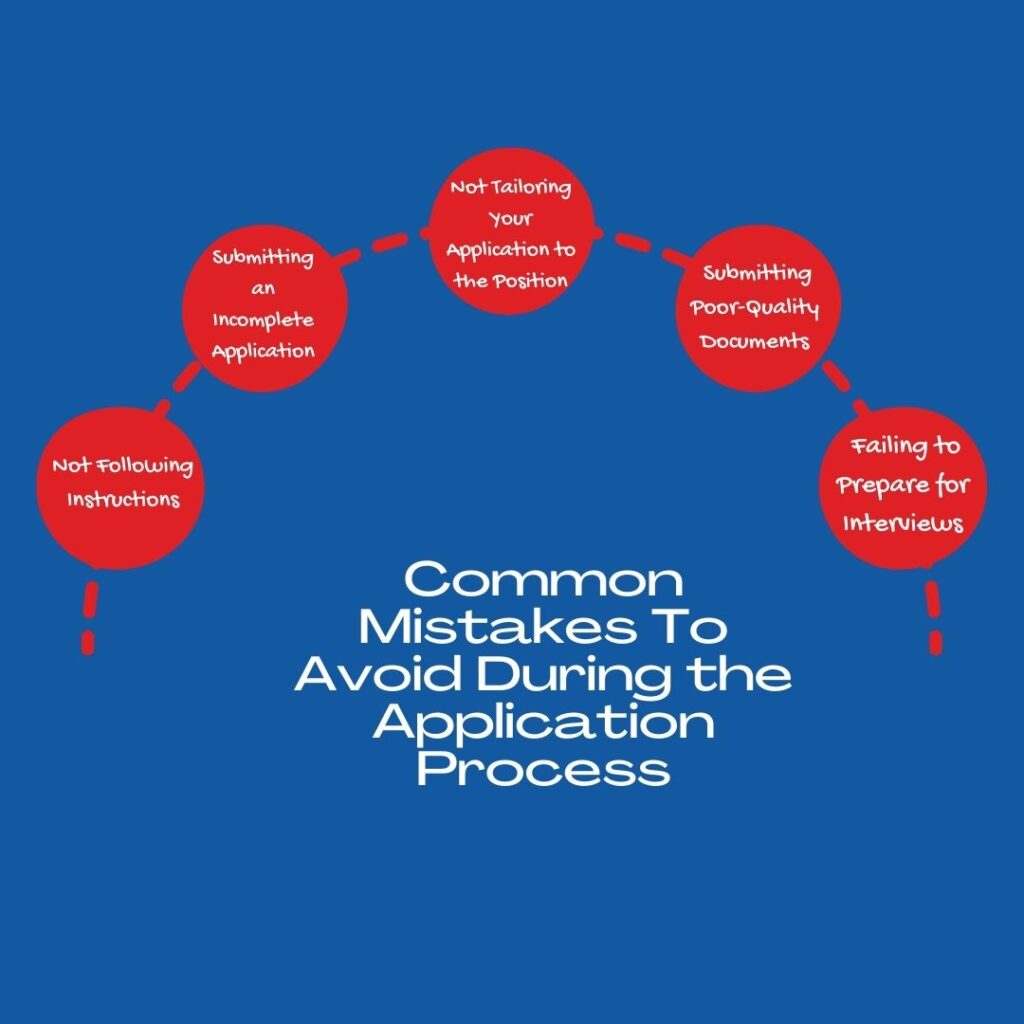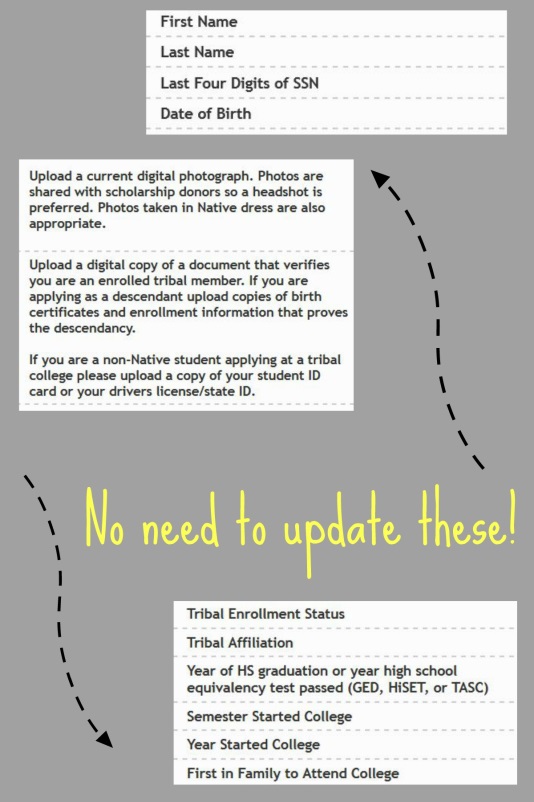5 Common Mistakes to Avoid in Your Scholarship Application

Securing a scholarship can significantly ease the financial burden of higher education, yet the application process is often competitive and demanding. Many deserving students inadvertently sabotage their chances by making easily avoidable errors. This article will dissect five common mistakes frequently observed in scholarship applications. By understanding these pitfalls, applicants can refine their submissions, present themselves more effectively, and substantially increase their odds of receiving funding. Learn how to avoid these critical oversights and make your application stand out for all the right reasons.
5 Common Mistakes to Avoid in Your Scholarship Application
Not Following Instructions
Many scholarship applications are rejected simply because applicants fail to adhere to the specific guidelines provided. This includes formatting errors, exceeding word limits, and missing required documents. Always read the instructions thoroughly and double-check that you have met all the requirements before submitting your application. Ignoring even seemingly minor details can signal a lack of attention to detail and dedication, potentially disqualifying you from consideration.
Weak or Generic Essay
The essay is often the most important part of your scholarship application, providing an opportunity to showcase your personality, experiences, and aspirations. A weak or generic essay that lacks personal insights or fails to answer the prompt effectively will not stand out. It is crucial to craft a compelling narrative that highlights your unique qualities and demonstrates why you deserve the scholarship. Use specific examples and anecdotes to illustrate your points and avoid clichés or vague statements.
Poor Grammar and Typos
Grammar and spelling errors can significantly detract from the overall quality of your application and create a negative impression on the selection committee. Even minor errors can suggest a lack of care and attention to detail. Be sure to proofread your application carefully before submitting it, and consider asking a friend, teacher, or mentor to review it as well. Using grammar and spell-checking tools can also help you identify and correct any errors.
Missing Deadlines
Submitting your scholarship application after the deadline is an automatic disqualification, regardless of how strong your application may be. It is essential to keep track of all deadlines and plan your time accordingly to ensure that you have ample time to complete and submit your application before the deadline. Creating a calendar or using a reminder system can help you stay organized and avoid missing crucial deadlines.
Lack of Research and Preparation
Applying for scholarships without properly researching your options or preparing adequately is a common mistake that can significantly reduce your chances of success. It's important to research the scholarship providers, their mission, and their selection criteria to determine whether you are a good fit. Spend time brainstorming your experiences, accomplishments, and goals to create a compelling application that showcases your strengths and demonstrates your potential.
| Mistake | Description | Why it Matters | Solution |
|---|---|---|---|
| Not Following Instructions | Ignoring specific guidelines like formatting, word limits, or required documents. | Shows lack of attention to detail and dedication. | Read instructions thoroughly and double-check all requirements. |
| Weak or Generic Essay | Essay lacks personal insights and fails to answer the prompt effectively. | Fails to showcase your personality and unique qualities. | Craft a compelling narrative with specific examples and avoid clichés. |
| Poor Grammar and Typos | Grammar and spelling errors detract from the application's quality. | Creates a negative impression and suggests a lack of care. | Proofread carefully and ask someone to review your application. |
| Missing Deadlines | Submitting the application after the stated deadline. | Automatic disqualification, regardless of application quality. | Keep track of all deadlines and plan your time effectively. |
| Lack of Research and Preparation | Applying without researching scholarships or preparing adequately. | Reduces chances of success and shows a lack of interest. | Research scholarships and brainstorm your experiences and goals. |
What not to say in a scholarship application?

Lack of Specificity and Vague Statements
Avoid making broad, general statements that could apply to anyone. Scholarship committees want to see how you specifically stand out. Don't say things like, "I'm a hard worker" without providing concrete examples. Instead, demonstrate your hard work with details about specific projects, responsibilities, or challenges you've overcome. Quantify your achievements whenever possible to add impact and credibility to your claims.
- Avoid phrases like, "I'm a good student."
- Instead, provide your GPA and mention any honors or awards you've received.
- Offer specific examples of projects or accomplishments that demonstrate your abilities.
Focusing Solely on Financial Need
While highlighting your financial situation can be relevant, making it the primary focus of your application is a mistake. Scholarship committees are looking for students who are not only in need but also have the potential to succeed and contribute to their community or field of study. Balance your discussion of financial need with equal or greater emphasis on your academic achievements, extracurricular activities, and future aspirations.
- Don't only write about your economic hardships.
- Mention your academic goals, skills and experience.
- Explain how you plan to use your education to make a positive impact.
Using a Negative or Complaining Tone
Scholarship applications should showcase your positive attributes and potential. Avoid expressing negativity, resentment, or self-pity. While it's acceptable to briefly mention challenges you've overcome, frame them as opportunities for growth and learning. Focus on your resilience and determination, not on dwelling on negative circumstances.
- Do not complain about hardships.
- Focus on the positive: goals and achievements.
- Transform negatives into positive learning experiences.
Writing Essays with Grammar and Spelling Errors
Submitting an application with grammatical errors and typos indicates a lack of attention to detail and professionalism. These errors can distract the reader and diminish your credibility. Proofread your application carefully, and consider asking a trusted friend, teacher, or mentor to review it as well. Many word processors and online tools can also help you identify and correct errors.
- Avoid slang, text-speak, or overly casual language.
- Carefully proofread the application and essay.
- Use online grammar and spell checking tools.
Plagiarism and Lack of Originality
Presenting someone else's work as your own is a serious ethical violation that can have severe consequences. Scholarship committees often use plagiarism detection software to identify copied content. Make sure every word in your essay is your own. Furthermore, avoid submitting generic or predictable essays that lack a unique voice or perspective.
- Do not copy content from internet or other essays.
- Be authentic and showcase personality.
- Develop original work showcasing writing skills.
What is the #1 way to increase your chances for a scholarship?

Improve Your GPA and Transcript
A high GPA is often a primary factor in scholarship selection. Focus on excelling in your classes and consistently earning top grades. Furthermore, a challenging transcript showcases your willingness to push your academic boundaries. Consider taking Advanced Placement (AP) or International Baccalaureate (IB) courses if available, or participate in honors programs. This demonstrates your commitment to academic rigor and your ability to handle demanding coursework.
- Prioritize Academic Excellence: Make academics your top priority and dedicate sufficient time to studying.
- Seek Help When Needed: Don't hesitate to ask teachers for clarification or utilize tutoring services if you're struggling with a particular subject.
- Choose Challenging Courses: Select courses that align with your interests and push you to learn more complex material.
Excel on Standardized Tests
Standardized tests like the SAT or ACT are often considered, even as some institutions move towards test-optional policies. Aim for high scores on these tests to demonstrate your aptitude and preparedness for college-level work. Even if a school is test-optional, submitting a strong score can only strengthen your application and scholarship chances. Prepare diligently and consider taking practice tests to identify areas for improvement.
- Begin Preparation Early: Start preparing for standardized tests well in advance to allow ample time for studying and practice.
- Utilize Practice Resources: Utilize official practice tests and other study materials to familiarize yourself with the test format and content.
- Consider Test Prep Courses: If needed, enroll in a test preparation course to receive structured instruction and personalized guidance.
Highlight Relevant Extracurricular Activities
While academics are paramount, demonstrating a well-rounded profile with meaningful extracurricular involvement is crucial. Focus on activities that align with your interests and showcase your skills and leadership abilities. Choose a few activities that you are truly passionate about and dedicate your time to becoming actively involved, this demonstrates your character, commitment, and potential contribution to the college community.
- Choose Activities Strategically: Select activities that align with your interests and showcase your skills and passions.
- Demonstrate Leadership: Seek leadership roles within your extracurricular activities to demonstrate your ability to lead and motivate others.
- Show Long-Term Commitment: Stick with your chosen activities for an extended period to demonstrate dedication and commitment.
Craft a Compelling Scholarship Essay
The scholarship essay is your opportunity to showcase your personality, experiences, and goals. Write a thoughtful and compelling essay that answers the prompt directly and highlights your unique qualities. Avoid generic responses and instead focus on telling a story that showcases your strengths, values, and aspirations. Proofread carefully for errors in grammar and spelling.
- Understand the Prompt: Carefully read and understand the essay prompt before you begin writing.
- Tell a Story: Share personal experiences and anecdotes that illustrate your points and make your essay more engaging.
- Proofread Meticulously: Carefully proofread your essay for errors in grammar, spelling, and punctuation.
Seek Strong Letters of Recommendation
Letters of recommendation can provide valuable insights into your character, work ethic, and potential for success. Request letters from teachers or mentors who know you well and can speak to your strengths and abilities. Provide them with ample time to write the letter and offer them information about your accomplishments and goals to help them write a compelling recommendation. A personalized recommendation from someone who knows you well holds far more weight.
- Choose Recommenders Wisely: Select teachers or mentors who know you well and can speak to your strengths and abilities.
- Provide Ample Information: Provide your recommenders with your resume, transcript, and a statement of your goals to help them write a comprehensive letter.
- Give Sufficient Notice: Request letters of recommendation well in advance of the application deadline to give your recommenders ample time to write.
Frequently asked questions
What is the biggest mistake students make in their scholarship applications?
The biggest mistake is failing to follow the instructions completely. Many students rush through the application process and overlook crucial requirements, such as word limits, formatting guidelines, or required documents. This demonstrates a lack of attention to detail and can lead to automatic disqualification, regardless of how qualified you may be.
Why is writing a generic essay a common pitfall?
Submitting a generic essay that could be used for any scholarship application is a major mistake because it fails to demonstrate your genuine interest in the specific scholarship. Scholarship committees want to see why you are a good fit for their particular award. Tailor your essay to highlight your alignment with the scholarship's values and mission.
How important is proofreading and editing?
Proofreading and editing are essential and neglecting them is a very common mistake. Grammatical errors, typos, and awkward phrasing can make you appear unprofessional and careless. Thoroughly review your application materials and have someone else proofread them as well to catch any errors you might have missed.
What constitutes 'not showcasing achievements'?
Not adequately showcasing your achievements means failing to highlight your skills, experiences, and accomplishments in a way that demonstrates your potential and suitability for the scholarship. Don't be modest; quantify your achievements whenever possible and explain how they have prepared you for future success. Provide specific examples that demonstrate your capabilities and passion.
